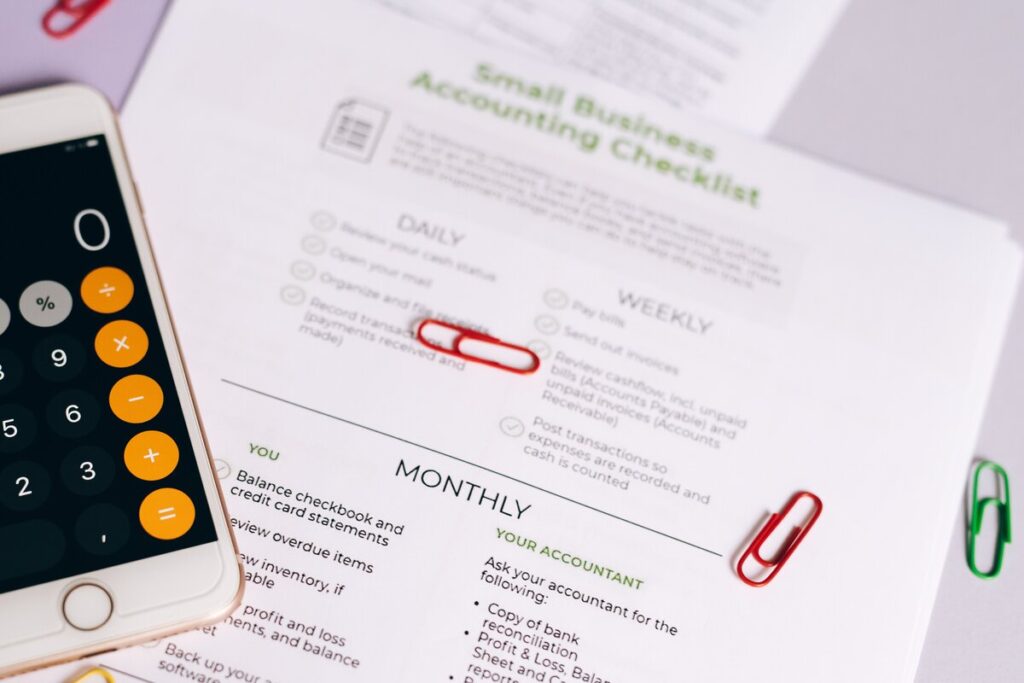
Understanding VAT in Abu Dhabi: Compliance and Reporting Guidelines – Trust Accounts Management.

A key element of Abu Dhabi’s fiscal system is the Value Added Tax (VAT). To avoid fines and streamline their financial processes, it is crucial for companies doing business in the emirate to understand the complexities of VAT in Abu Dhabi compliance and reporting.
We’ll go into the key features of Abu Dhabi’s VAT in this blog, into a thorough explanation concerning how to guarantee compliance and accurate reporting. Trust Accounts Management is dedicated to guiding businesses through accounting in Abu Dhabi’s complicated VAT system.
Understanding VAT in Abu Dhabi
In Abu Dhabi, a consumption tax known as Value Added Tax (VAT) is imposed on the added value of goods and services at each stage of the supply chain. The standard VAT in Abu Dhabi rate is 5%. It is essential that both businesses and individuals have a clear understanding of the basics of the VAT system in Abu Dhabi. This will ensure that they are compliant with and follow the requirements of VAT, which in turn will result in effective management of their finances.
Businesses must register for VAT if their annual sales surpass a certain threshold. Registered enterprises must be able to charge and collect VAT from customers on their taxable supplies instead of paying VAT on their input expenses. They are required to submit VAT returns regularly detailing their sales, purchases, and VAT liability.
The VAT registration process for businesses in Abu Dhabi

To guarantee your business is VAT compliant, it is necessary for businesses to comprehend the fundamental compliance and reporting rules. Businesses in Abu Dhabi may find the VAT registration procedure quite intimidating, but with the correct financial services from our team of professionals, it can be a quick and easy process.
Businesses in Abu Dhabi must first determine if they meet the prerequisites for registration before starting the VAT registration process. The threshold is currently set at AED 375,000 for taxable supplies each year. A business must register for VAT within 30 days after exceeding this limit.
The Federal Tax Authority’s (FTA) web portal account creation is the initial stage of registration. This portal provides the focal point for all VAT-related tasks, such as registration, return filing, and payment processing.
After registering on the FTA portal, firms must submit essential records such as their trade license, Emirates ID, copies of the partners’ or owners’ IDs, information about the company’s operations, and the amount it makes each year. To avoid delays or fines in the registration process, it is necessary to verify that all the information submitted is accurate and up to date.
VAT on Imports and Exports
VAT on imports and exports is crucial for international trade and a nation’s overall fiscal structure. VAT on imports and exports in Abu Dhabi is subject to a set of regulations.
- VAT on Imports – VAT is typically due at the port of entry when merchandise is brought into Abu Dhabi. Importers must pay customs officials VAT. When selling imported items domestically, registered enterprises can deduct import VAT from their output VAT burden because it is recoverable as an input tax.
- VAT on Exports: For VAT reasons, most goods, and services exported from Abu Dhabi qualify as zero-rated exports. This indicates that no VAT was applied to these shipments. Businesses that export products or services are eligible for reimbursement of existing VAT on associated costs.
These VAT systems aim to advance global trade and maintain market competitiveness. For firms engaged in international business, proper paperwork and adherence to VAT laws are crucial to ensuring they receive the benefits of these laws while abiding by the standards established by the tax authorities.
Special VAT Schemes
Special VAT schemes in Abu Dhabi seek to lessen administrative burdens and encourage economic expansion. There are several significant special VAT programs.
- VAT Margin Scheme: This system is commonly used when selling used items, antiques, and collectibles. VAT is only applied to the profit margin (the difference between the buying and selling prices), as opposed to the whole selling price, when calculating sales taxes. It benefits used-item businesses and reduces their VAT liability.
- Tourist Refund Program: Visitors to Abu Dhabi may claim refunds for VAT on some things acquired during their visit. Tourists will find it easier to purchase in Abu Dhabi as a consequence of the scheme’s requirement that retailers participating in it adhere to particular rules.
- VAT Grouping: A VAT group is a collection of companies related or run by the same management team. This enables companies to streamline compliance for associated entities by simplifying reporting and calculations.
- Designated Zones: A few areas of Abu Dhabi are regarded as designated zones for VAT. Businesses operating in these zones might be subject to unique VAT regulations, such as zero-rated or exempt supplies, which would make it easier for them to comply with VAT regulations.
These programs provide companies with different ways to figure out and report their VAT obligations, to simplify VAT compliance for particular industries or circumstances.
Practical Tips for VAT Compliance

Businesses must use practical advice for VAT compliance in Abu Dhabi to successfully navigate the complicated regulatory environment and reduce the risk of mistakes or fines. Here are some helpful suggestions:
- Understand VAT Basics- Make sure your workforce is well-versed in the fundamentals of VAT, such as taxable supply, input tax, and the VAT rate. Spend money on training and keep up with changes to VAT legislation.
- Accurate Record-Keeping- Maintain exact records of all financial transactions, such as invoices, receipts, and VAT returns. A well-designed record-keeping system makes compliance easier and aids in resolving conflicts.
- Timely VAT Registration- If your turnover surpasses the threshold, register for VAT right away. Penalties may result from a delayed registration. On the other hand, if your turnover falls below the cutoff, think about de-registration.
Violations of VAT legislation can have severe ramifications, such as high fines, harm to one’s reputation, and even legal repercussions. Our professionals are vigilant to ensure clients and customers comply with all VAT laws.
Professional accountants such as our team at Trust Accounts can help ensure that firms remain compliant and prevent penalties or legal difficulties by following up to date with the most recent rules and regulations. Our team has extensive experience in the VAT registration procedure, keeping proper records, and submitting VAT returns on time.
Conclusion
In Abu Dhabi, businesses and accountants must keep informed about and comply with VAT requirements. The region has experienced substantial changes in how organizations operate and manage their financial affairs as an outcome of the implementation of VAT.
This can be daunting to entrepreneurs or business owners who are new to the region, and that is why our trained professionals are here with years of experience in handling these challenges for your business. For more information or assistance, do not hesitate to get in touch with us!
FAQ’s
- What impact does the VAT have on Abu Dhabi’s small businesses?
Ans- Small firms in Abu Dhabi are impacted by VAT since they must register, collect, and remit VAT on taxable supplies. This increases administrative costs and could have an impact on cash flow. They need to manage compliance to prevent fines and preserve their competitiveness carefully, but they can also claim input VAT credits, which reduce the net tax burden.
- Can I claim input VAT in Abu Dhabi on expenses incurred before registering for VAT?
Ans- Yes, firms in Abu Dhabi may deduct input VAT on costs incurred before their VAT registration as long as they satisfy a few criteria, such as possessing legitimate tax invoices and meeting the necessities for VAT registration. This aids in the reimbursement of VAT paid on pre-registration costs.
- What are the consequences of late VAT return filings?
Ans- Financial penalties, often in the form of fixed and daily fines, may be applied for late VAT return files in Abu Dhabi contingent upon the length of the delay and the taxpayer’s compliance record.
- Are there any exemptions or reduced rates for specific goods and services?
Ans- Yes, Abu Dhabi provides specific exclusions and lower VAT rates for several goods and services, including necessities like food and medical treatments.
- What is the process for handling VAT on second-hand goods?
Ans- In Abu Dhabi, VAT is typically applied on the profit margin rather than the whole selling price when buying and selling used products. To demonstrate the used status of the products and the purchase price, the seller must keep documents. When compared to ordinary sales, this approach lowers the VAT liability.
- What should I do if I discover an error in my VAT return after submission?
Ans- After completing your VAT return in Abu Dhabi, if you discover an error, you must promptly file an amended return with the appropriate corrections and justifications to ensure accurate reporting.
- What should I do if I discover an error in my VAT return after submission?
Ans- After completing your VAT return in Abu Dhabi, if you discover an error, you must promptly file an amended return with the appropriate corrections and justifications to ensure accurate reporting.

